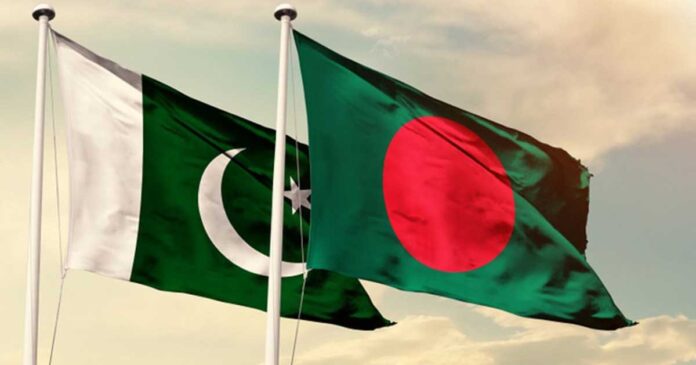Speculation is mounting among salt traders regarding a potential surge in exports to Bangladesh, fueled by recent political developments and environmental challenges in the region. The shift comes as Bangladesh seeks alternatives to its primary salt supplier, India, whose production has been hampered by severe monsoon rains.
Industry insiders have reported a marked increase in quotation requests from Bangladeshi traders, attributed largely to Bangladesh’s recent relaxation of trade policies. This policy shift is anticipated to create smoother and more favorable conditions for importing salt (sodium chloride) into the country.
“The relaxed trade policy has certainly opened new doors for us,” commented Bangladeshi traders Onik Chowdhury and Mahmudur Rashid in an interview with The Express Tribune. “We’re witnessing a significant rise in demand for salt, and it’s clear that this policy shift is playing a crucial role in this trend.”
The situation in India has exacerbated this shift. Heavy monsoon rains have disrupted salt production, leaving Indian exporters unable to meet Bangladesh’s growing demand. This has led Bangladeshi traders to seek alternative sources, including Pakistani salt, to fill the supply gap. Pakistani salt producers are already seeing the benefits of this development, with many reporting a surge in orders from across the border. “The timing of this change is critical for us,” remarked Ali Haider, a Pakistani salt exporter. “With Indian supply disrupted, we’re in a strong position to meet the growing needs of the Bangladeshi market.”
The combination of political changes in Bangladesh, advantageous trade policies, and production issues in India is expected to result in a substantial increase in salt exports to Bangladesh in the coming months. Industry stakeholders are closely monitoring these trends, preparing to adapt to the evolving market dynamics and seize emerging opportunities.
Recent data from Pakistan Revenue Automation Limited (PRAL) revealed that Pakistan exported salt worth $0.022 million from September to December 2023. However, the data shows no exports from January to July 2024, underscoring the need for a strategic approach as demand picks up.
Ismail Suttar, CEO of HubSalt and President of the Lasbela Chamber of Commerce and Industry, emphasized the importance of maintaining high quality and competitive pricing to secure Pakistan’s position in the Bangladeshi market. Speaking to The Express Tribune, Suttar highlighted that consistent quality and cost-effectiveness are key to retaining orders from Bangladeshi traders.
“We’ve been exporting technical and pharmaceutical-grade salt to Bangladesh for some time now. However, business decisions are driven by economic logic. If Pakistani salt is both cheaper and better in quality, Bangladesh will likely increase its purchases from us. But if our salt fails to meet quality or pricing expectations, they will look elsewhere, regardless of bilateral ties,” Suttar explained.
While acknowledging that the current spike in demand might be driven by the excessive monsoon rains in India, Suttar cautioned that such phenomena are often temporary.
“The rise in demand presents a significant opportunity, but we must meet the expectations for quality and price,” he added. “Bangladeshi traders are seeking reliable suppliers who can consistently deliver high-quality salt at reasonable prices. To capitalize on this opportunity, it’s essential that our products meet these standards.”




